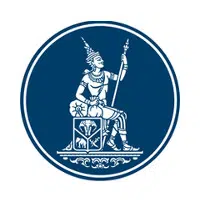Mastercard, Visa and UnionPay International have introduced a standardised QR code platform for payments in Thailand that will let consumers make a transaction with their mobile device at any supporting location. The service has been designed to support the Bank of Thailand’s cashless agenda which aims to “drive innovation, interoperability and security in payments” across the country.
 Standardized QR Code is “intended to be implemented” by banks and merchants across Thailand by the end of the third quarter of 2017 and will be “globally interoperable”, meaning that consumers will be able to make payments using the same QR code “everywhere the standards have been adopted”.
Standardized QR Code is “intended to be implemented” by banks and merchants across Thailand by the end of the third quarter of 2017 and will be “globally interoperable”, meaning that consumers will be able to make payments using the same QR code “everywhere the standards have been adopted”.
“In order to pay, consumers holding a Mastercard, UnionPay or Visa card can simply use a mobile application with Standardized QR Code support to scan the merchant-presented QR code,” Mastercard says. “QR Code works on both smartphones and feature phones with camera function.
“The Standard QR Code is simple to set up and use and provides three key benefits. First, consumers will not need to scan different QR codes to make payments with Mastercard, UnionPay and Visa. Merchants will only need to display one QR code at the storefront or through the acquiring bank’s mobile application.
“Second, by routing the transactions through global-standard processing networks, consumers can enjoy a fast, convenient and secure payment experience. Third, the standards are intended to be globally interoperable and with the right mobile application, consumers will be able to use the same QR code to make payments everywhere the standards have been adopted.”
Growth in demand
“Our own research, for example, shows that 50% of young consumers across Southeast Asia would use the QR code straightaway, and we believe this reflects the demand in Thailand,” says Donald Ong, country manager for Thailand and Myanmar at Mastercard. “This demand will grow further as the technology is rolled out at small shops across the country, and includes bill payments and cash on delivery as well.”
“By enabling consumers and merchants to pay and process QR codes easily and securely, this will accelerate the development of the local payments industry as we continue to work with the Bank of Thailand on payment solutions that will benefit the people of Thailand,” adds Wenhui Yang, general manager for UnionPay International Southeast Asia.
“We believe the Standardized QR Code has the potential to support and strengthen the Thai economy and help Thailand become a truly cashless society.”
Next: Visit the NFCW Expo to find new suppliers and solutions